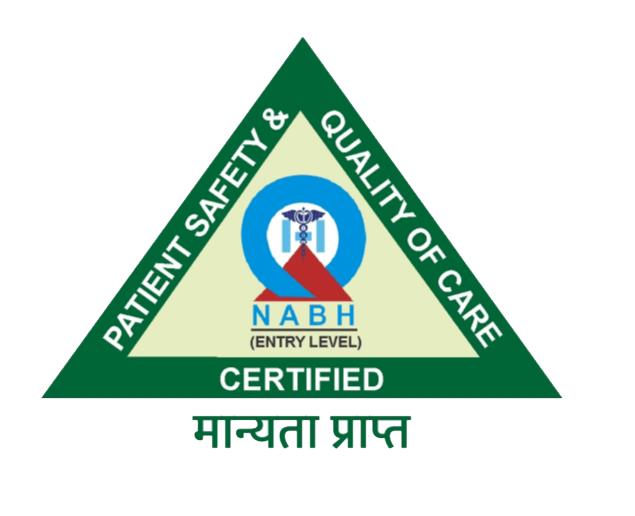Patient’s rights and responsibility

| Right to Information |
 To be informed about the names of the doctors, nurses and other healthcare team members involved in your care.
To be informed about the names of the doctors, nurses and other healthcare team members involved in your care. A clear and understandable explanation by your doctor about your diagnosis, as well as the benefits and risks of each treatment, expected outcome and change in medical condition.
A clear and understandable explanation by your doctor about your diagnosis, as well as the benefits and risks of each treatment, expected outcome and change in medical condition.
|
| Right to records and reports |
 Every patient has a right to request for a copy of your medical records as per protocol.
Every patient has a right to request for a copy of your medical records as per protocol.
|
| Right to Emergency Medical Care |
 Injured persons have a right to get Emergency Medical Care.
Injured persons have a right to get Emergency Medical Care.
|
| Right to informed consent |
 Every patient has a right that informed consent must be sought prior to any potentially hazardous test/treatment (e.g. invasive investigation / surgery) which carries certain risks.
Every patient has a right that informed consent must be sought prior to any potentially hazardous test/treatment (e.g. invasive investigation / surgery) which carries certain risks.
|
| Right to confidentiality, human dignity and privacy |
 Every patient has a right to full protection of privacy, dignity and confidentiality in care discussions, examinations, and treatments.
Every patient has a right to full protection of privacy, dignity and confidentiality in care discussions, examinations, and treatments.
|
| Right to second opinion |
 Every patient has the right to seek a second opinion from an appropriate clinician of patients’ / caregivers’ choice.
Every patient has the right to seek a second opinion from an appropriate clinician of patients’ / caregivers’ choice.
|
| Right to transparency in rates, and care according to prescribed rates wherever relevant |
 Every patient has a right to receive information from the hospital regarding the expected cost of treatment and payment policies.
Every patient has a right to receive information from the hospital regarding the expected cost of treatment and payment policies.
|
| Right to nondiscrimination |
 Every patient has a right to be treated with respect, consideration, compassion and dignity, regardless of your age, gender, race, origin, religion, sexual orientation or disabilities.
Every patient has a right to be treated with respect, consideration, compassion and dignity, regardless of your age, gender, race, origin, religion, sexual orientation or disabilities.
|
| Right to safety and quality care according to standards |
 Be treated in a safe and clean environment.
Be treated in a safe and clean environment. Be protected from physical abuse & neglect.
Be protected from physical abuse & neglect.
|
| Right to choose alternative treatment options if available |
 Patients and their caregivers have a right to choose between alternative treatment / management options, if these are available,
Patients and their caregivers have a right to choose between alternative treatment / management options, if these are available,
|
| Right to proper referral and transfer, which is free from perverse commercial influences |
 Every patient has a right to receive a complete explanation of the justification for the transfer, the alternative options for a transfer.
Every patient has a right to receive a complete explanation of the justification for the transfer, the alternative options for a transfer. The patient and caregivers have the right to be informed by the hospital about any continuing healthcare requirements following discharge from the hospital.
The patient and caregivers have the right to be informed by the hospital about any continuing healthcare requirements following discharge from the hospital.
|
| Right to take discharge of patient, or receive body of deceased from hospital |
 A patient has the right to take discharge and cannot be detained in a hospital, on procedural grounds such as dispute in payment of hospital charges.
A patient has the right to take discharge and cannot be detained in a hospital, on procedural grounds such as dispute in payment of hospital charges. Similarly, caretakers have the right to the dead body of a patient who had been treated in a hospital and the dead body
Similarly, caretakers have the right to the dead body of a patient who had been treated in a hospital and the dead body
|
| Right to Patient Education |
 Patients have the right to receive education about major facts relevant to his/her condition and healthy living practices, their rights and responsibilities, officially supported health insurance schemes relevant to the patient
Patients have the right to receive education about major facts relevant to his/her condition and healthy living practices, their rights and responsibilities, officially supported health insurance schemes relevant to the patient
|
| Right to be heard and seek redressal |
 To express grievances regarding any violation of your rights, through the grievance procedure of the health care provider.
To express grievances regarding any violation of your rights, through the grievance procedure of the health care provider.
|
PATIENT & ATTENDANT RESPONSIBILITIES
As a patient or attendant, you are responsible :
- For keeping appointments, being on time for appointments, and calling your doctor/hospital if you cannot adhere to the appointment timing.
- For providing complete and accurate information, including your full name, address, telephone number, date of birth, particulars of next-of-kin and insurance company/TPA/employer, past illness, and medication details wherever required.
- For actively participating in your treatment plan and to keep your doctors and nurses informed of the effectiveness of your treatment.
- Please leave your valuables at home and only bring necessary items.
- For treating all hospital staff, other patients and visitors with courtesy and respect; abide by the hospital rules and safety regulations; be considerate of noise levels, privacy and number of visitors; and comply with the ‘No Smoking’ policy.
- For understanding all instructions before signing the consent forms.
- To assure that the financial obligations of patients care are fulfilled as per the hospital policy.
- A patient is responsible for his or her actions if he or she refuses treatment or does not follow the health care provider's instructions.
- Patients should not take self-medication.
- To respect that some other patient’s medical condition may be more urgent than yours and accept that your doctor may need to attend them first.



